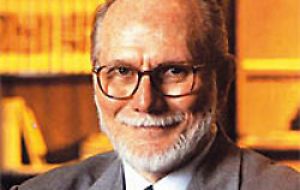MercoPress. South Atlantic News Agency
Venezuelan top private bankers help to calm markets and depositors
 Planning Minister Giordani has promised an end to “speculative banking”
Planning Minister Giordani has promised an end to “speculative banking” A two-week banking crisis in Venezuela seems to be settling down following President Hugo Chavez announcement that private banks will be respected but new rules to make the system more transparent and production-geared will begin to be enforced.
Authorities last week closed seven small private banks, representing 8% of total deposits while prosecutors issued 30 arrest warrants and 15 travel bans to bankers. The situation forced the resignation of a cabinet minister whose brother is pointed out as one of the ring leaders of the “speculative banking network”.
“Private banks will not be able to speculate and their operations will be focused primarily on financing productive activities and not on financial speculation” said Planning Minister Jorge Giordani, who heads President Hugo Chavez' economic-policy team.
Giordani made his comments Monday during a meeting of bankers and government officials that included Chavez who has threatened intervention even in the top banks, which so far have proven solid and solvent.
“They were little banks governed by large crooks” Chavez said who called on bankers to abide the law. But he also appealed on large financial institutions to help the state pay the deposits of savers hit by the bank closures.
Venezuelan banks' financial-market activities are overwhelmingly concentrated in the purchase of government bonds. Banks' investment in government paper has jumped 50% in the last 12 months and stands at the equivalent of 40 billion US dollars.
Banks are already forced to earmark nearly half of their lending to industries such as manufacturing, agriculture and tourism following government guidelines. But it is more profitable for them to invest in government bonds than to give out loans.
The scandal was the first serious rift between Chavez and a group of businessmen who have grown wealthy from deals with, or allowed by, his government. They are known as the “Boli-burguesía” a combination of the name Simon Bolivar, the liberator hero worshipped by Chavez and the alleged revolutionaries turned into “bourgeoisie”.
The most spectacular arrest targeted the brother of cabinet minister Jesse Chacon, a close Chavez ally who later stepped down.
“There's no sacred cow,” Chavez said, calling on his supporters to “tighten the moral belt” and to set an example of transparency and honesty.
Cabinet ministers and government legislators have publicly admitted that tackling corruption and rampant crime have become key challenges for the Chavez administration during current hard times in Venezuela's oil-dependent economy and ahead of legislative elections next year.




Top Comments
Disclaimer & comment rulesCommenting for this story is now closed.
If you have a Facebook account, become a fan and comment on our Facebook Page!